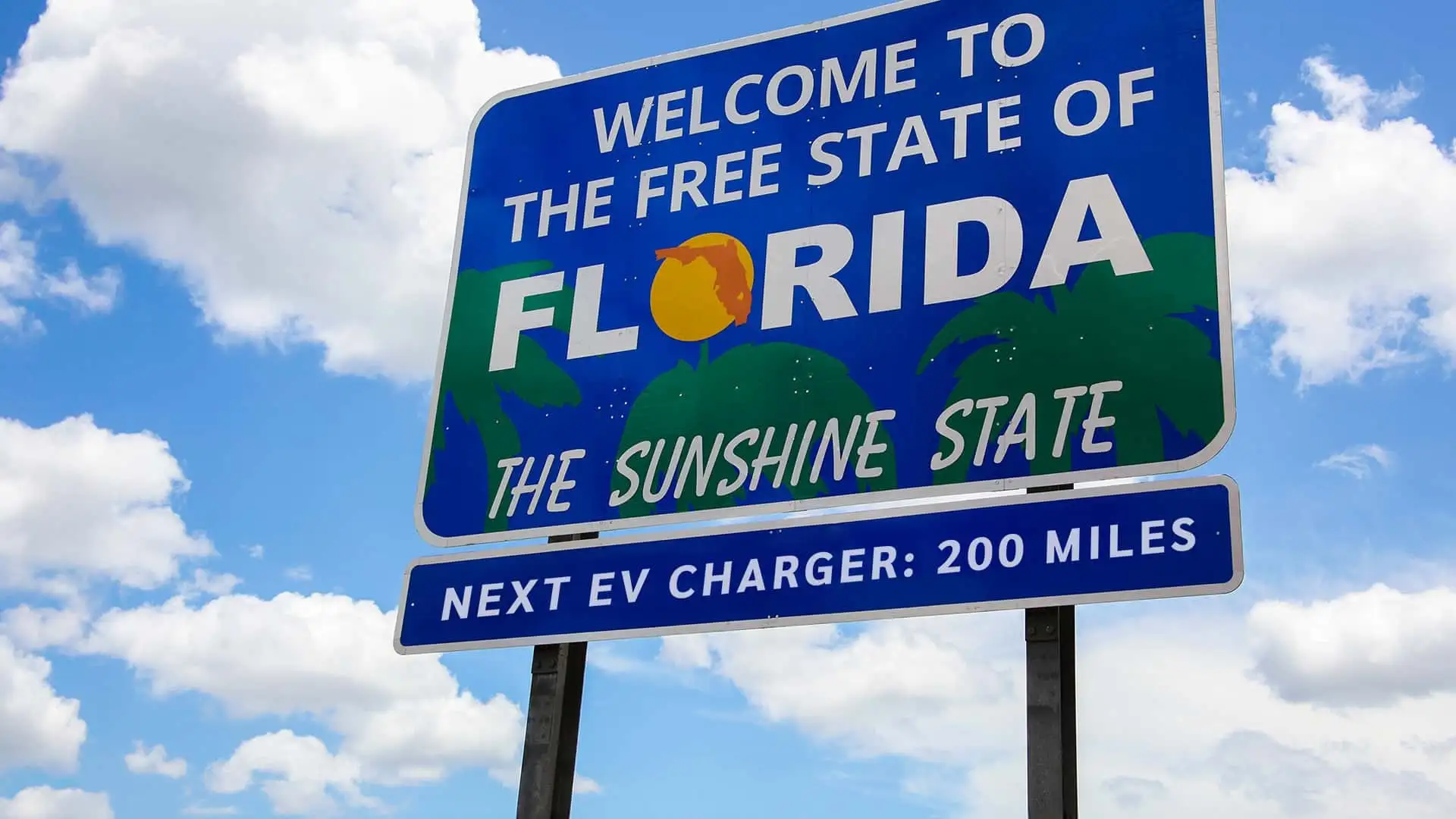Florida Has A Huge EV Market. It's Paying For Other States' Chargers Instead

Gov. Ron DeSantis once aimed to “strengthen” Florida’s EV infrastructure. Now it's denying federal charging funds, and the money is going elsewhere.
By the end of 2023, Florida’s roads were home to about 232,000 electric vehicles, making the Sunshine State the second-biggest EV market in the U.S. Chalk it up to low electricity costs, or abundant sunlight for solar energy, or even the huge luxury car market in cities like Miami. No matter the reasons, Florida’s electric car growth has been hailed as “a beacon of progress” by the nonprofit Electrification Coalition.
Not a bad outcome for a technology that’s often embroiled in bitter, partisan politics—especially in a state where the political climate is very different from other EV-heavy places like California and New York.
But politics are coming for EVs in Florida. As the U.S. government aims to make unprecedented investments into charging networks that serve EV drivers, Florida is falling behind—a deliberate decision by state leaders.

